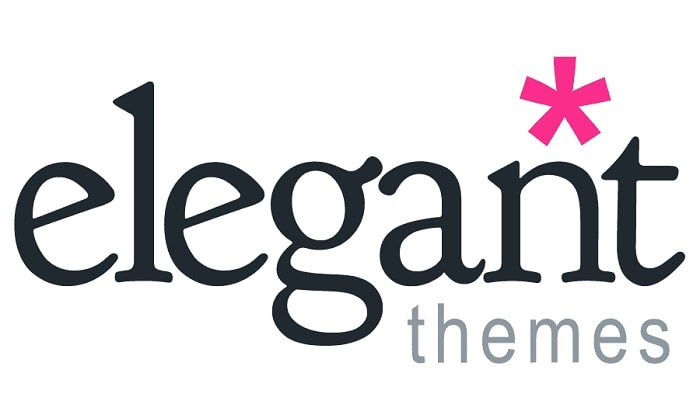How secure are WordPress websites for e-commerce? Pros and cons
So, you’re considering using WordPress as your website-building platform for opening an online business. But are WordPress websites secure enough for your e-commerce needs?

In this article, we’ll explore the security aspects of using WordPress for your e-commerce venture, comparing it to other CMS platforms. As the security of your online business is paramount, it’s crucial to weigh the pros and cons before making your decision.
We’ll also discuss the role of web hosting providers in enhancing WordPress security and provide insights to help you safeguard your online store. So keep reading!

Before we start, let’s remember that WordPress.org and WordPress.com are NOT the same website-building platform, and this article refers to WordPress.org, not WordPress.com.
| This page contains affiliate links. If you purchase through our links, we get a commission at no cost to you. Read the full disclosure here. |
Pros of using WordPress for e-commerce: Secure WordPress websites

WordPress offers several advantages when it comes to building secure websites for e-commerce. Let’s delve into the pros:
1. User-friendly CMS platform
WordPress is renowned for its user-friendliness. It allows even non-technical users to create and manage an online shop effortlessly. This ease of use is beneficial for small business owners who might not have extensive technical knowledge of web development and online security.
2. Rich plugin ecosystem for enhanced security
The vast array of plugins available for WordPress is a significant advantage. You can enhance your online security by using plugins specifically designed for e-commerce, such as WooCommerce, which comes with security features and regular updates to protect your online store.
3. SEO-friendly
WordPress is inherently SEO-friendly, which can help boost your online business’s visibility. By implementing best SEO practices, you can improve your website’s rankings, driving more organic traffic and potential customers.
Suggested reading: How to optimize your website structure for SEO (Improve your rankings in 7 steps!)
4. Active community and continuous updates
The WordPress community is active and dedicated to improving the platform’s security. Regular updates and patches are released to address security vulnerabilities, making it a reliable choice for online business owners concerned about online security.
Cons of using WordPress for e-commerce: Potential security concerns
Despite the numerous advantages, there are cons you should consider as an online business owner:
1. Vulnerability to hacking
WordPress is a common target for hackers due to its popularity. Without proper security measures in place, your online shop can be vulnerable to cyber threats. Regularly updating plugins and themes is crucial to prevent security breaches.
2. Plugin and Theme compatibility
While plugins and themes provide enhanced functionality, they can also create compatibility issues. Incompatibilities can lead to vulnerabilities that hackers may exploit. In other words, careful selection and management of plugins are essential to mitigate these risks.
3. Dependence on web hosting providers
Your choice of web hosting provider plays a significant role in your online business website’s security. Some hosting providers offer more robust security features and support for e-commerce than others. Opting for a reliable hosting provider is crucial for the security of your online store.
How do I secure my e-commerce website on WordPress?

WordPress security should be a top priority when operating an online shop. To secure your WordPress website for e-commerce, consider the following best practices:
- Regular updates: Ensure that your WordPress core, plugins, and themes are regularly updated to patch security vulnerabilities.
- Password strength: Use strong and unique passwords for your website, and consider implementing two-factor authentication for added protection.
- Security plugins: Install reputable security plugins like Solid Security / SolidWP and Hide My WP to monitor and protect your online store.
- Backup solutions: Implement automated backup solutions to protect your data in the event of a security breach. You can opt for a reliable and complete backup plugin such as Solid Backups / SolidWP or a WordPress hosting provider such as DreamHost that performs full backups on your e-commerce website without additional cost.
Related: Improve WordPress security with these advanced tips
Secure WordPress hosting provider for e-commerce websites: A critical factor
The security of your WordPress website for e-commerce also depends on the web hosting provider you choose. When selecting a hosting service, look for the following security features:
- SSL/TLS encryption to protect customer data during transactions.
- Regular backups to ensure data recovery in case of cyberattacks or system failures.
- A strong firewall to prevent unauthorized access to your online store.
- Malware scanning and removal services to keep your website clean from potential threats.
Here we have two affordable web hosting providers officially recommended by WordPress.org itself for you to choose from:

DreamHost’s Shared Unlimited Plan
$2.95/mo (billed $35.40 annually)
- Unlimited Websites
- Free Domain Included
- Free Domain Privacy
- Unlimited Traffic
- WordPress Installer
- Fast SSD Storage
- Free SSL Certificate
- Unlimited Email @ Your Domain
- Automated Daily Backups
- Live Chat Support
- Unlimited Site Storage
- Unlimited Subdomains
- Money-back Guarantee
- Unlimited MySQL Databases
- Unlimited FTP/SFTP/Shell Users

SiteGround’s WooCommerce Hosting Plan
$2.99/mo (billed $35.88 annually)
- 1 Website
- 10 GB Web Space
- ~ 10,000 Visits Monthly
- Unmetered Traffic
- Free WP Installation
- WordPress Autoupdates
- Free SSL
- Daily Backup
- Unlimited MySQL
- 24/7 Support
- SSH Access
- Collaborators Can be Added
- 30 Days Money Back
- Free Email Accounts
- Free CDN
Which WordPress Themes are best to secure e-commerce websites?
When it comes to running a successful e-commerce venture, the choice of a WordPress theme can’t be underestimated. Your theme is the face of your online shop, and it directly impacts your store’s functionality, search engine visibility, and overall user experience. Not to mention that responsive and SEO-friendly themes can propel your online shop to new heights!
Moreover, I’d like to emphasize the importance of user-friendliness, as it can save you the headache of coding or hiring a designer. After all, the aesthetics of your online shop play a pivotal role in captivating your audience and turning visitors into loyal customers.
Whether you’re a seasoned e-commerce professional or just embarking on your online selling journey, making the right choice of a WordPress theme is paramount to your success.

Here are two well-documented and secure WordPress themes for your e-commerce website:
These WP themes will save time, money, and headaches, not to mention help you to take your online catalog to page #1 of Google.

$29.99/1-Time For One Site License or $89.99/1-Time For Unlimited Sites License
- Advanced WooCommerce Ready
- Responsive & Retina Ready
- SEO Optimization
- Built-in Predefined Styles
- 1-Click Demo Import
- Promo Boxes
- Grid Layout
- Post Sharing Icons
- Featured Slider
- 1400+ Google Fonts
- Unlimited Colors
- Translation & RT
- GDPR Compliance
- Instagram Widget Area
- 24/7 Premium Support
- Lifetime Updates
- 30 Days Money Back Guarantee.
- One-Time Fee

$89/year or $249/1-Time For Lifetime Access
- Access To Divi, Extra, Bloom & Monarch
- Hundreds Of Website Packs
- Lifetime Updates
- Lifetime Premium Support
- Unlimited Website Usage
- Divi WooCommerce Modules
- 100’s of Pre-Built Websites
- Access to 1000’s of Open Source Photos & Illustrations
- Email Opt-in Plugin
- Social Sharing Plugin
- Constant Updates
- Rock Solid Security
- 24/7 Premium Support
- Risk-Free Guarantee
- One-Time Fee Available
- Lifetime Access Available
Which platform is best for building secure e-commerce websites?
Choosing the right platform for your online store is a critical decision that can significantly impact your business’s success.
With a multitude of options available, each boasting its own set of features and advantages, finding the best platform can be a daunting task.
So let’s explore the key factors to consider when selecting the ideal platform for your e-commerce venture. Whether you’re a small business owner, an entrepreneur, or a seasoned e-commerce professional, this quick and comprehensive review will help you make an informed choice, tailored to your specific needs and goals.
Which is more secure WordPress or Shopify?
WordPress and Shopify each offer a level of security. WordPress provides more control over security measures, with a vast plugin ecosystem and an active user community. However, it demands users’ expertise and diligent maintenance. Shopify simplifies security with managed hosting but offers less customization.
Also, it’s worth mentioning even if it’s not about security that, although WordPress requires web hosting and some paid plugins and themes, it’s still far less expensive than Shopify whose basic plan starts at $19,90/mo and also has transaction fees for certain payment methods.
Now, back to the security comparison, WordPress boasts more pros due to its flexibility and plugin support, allowing users to tailor their security. Conversely, Shopify’s closed environment may be less appealing to users seeking greater control over their online store’s security.
Is Shopify better than WordPress for eCommerce?
Shopify can be considered better for eCommerce due to its user-friendly setup and hosting but lacks cheaper plans for starters and small businesses.
WordPress, on the other hand, when properly configured with WooCommerce, provides greater customization, flexibility, and SEO control, making it a powerful choice for those who value a unique and scalable online store as well as affordability and flexibility in monthly or yearly expenses.
Suggested reading: How to Start a Blog with No Experience (No Coding Skills Needed!)
Is Wix or WordPress better for e-commerce?
In comparison, although Wix excels in user-friendliness and simplicity, WordPress is better for e-commerce due to its customization, plugin support, SEO flexibility, and cost control, making it the preferred choice for businesses aiming for a highly tailored online shopping experience.
But let’s check the pros and cons of each platform:
WordPress for eCommerce
Pros:
- Customization: WordPress offers complete control over design and functionality.
- Plugin support: A vast array of e-commerce plugins like WooCommerce provide flexibility.
- SEO flexibility: Offers better SEO control for e-commerce optimization.
- Cost control: Users can manage hosting costs based on needs and budget.
Cons:
- Separate Hosting and Security: Users need to manage hosting and security, which may require extra effort.
- Plugin Management: The use of plugins can sometimes lead to compatibility issues.
Wix for eCommerce
Pros:
- User-friendly: Wix is beginner-friendly with a simple, intuitive interface.
- All-in-one solution: It includes hosting, security, and other essentials, reducing complexity.
- Templates: Offers a wide range of attractive e-commerce templates for quick setup.
Cons:
- Limited customization: Wix provides less flexibility for customizing design and functionality.
- SEO Limitations: Its SEO capabilities are not as robust for e-commerce optimization.
- Scalability challenges: May not accommodate extensive product catalogs as businesses grow.
- Cost restrictions: As your online store expands, Wix’s pricing may become less cost-effective.
Which is better WooCommerce or Shopify?
WooCommerce and Shopify are both robust e-commerce platforms, each with its own strengths:
WooCommerce (Best for customization):
Pros:
- Free and open-source, with no transaction fees.
- Complete control over your store’s design and functionality.
- A vast library of plugins and extensions for added features.
- Ideal for scaling and growing your business.
- Integration with WordPress for content and SEO.
Cons:
- Requires more technical expertise for setup and maintenance.
- You’ll need to manage hosting and security.
- Some add-ons require paid subscriptions.
Shopify (Best for ease of use):
Pros:
- User-friendly, with a quick and simple setup process.
- Hosted solution, so no need to worry about hosting or security.
- Excellent customer support.
- Comprehensive app store for additional features.
Cons:
- Transaction fees unless you use Shopify Payments.
- Limited customization compared to WooCommerce.
Your choice depends on your technical skills, customization needs, and the size of your business. WooCommerce is excellent for those who want complete control, while Shopify offers simplicity and convenience.
Can I create a free secure e-commerce website with WordPress?
Yes, you can create a free e-commerce website with WordPress using the WooCommerce plugin. WooCommerce is an open-source e-commerce solution that’s free to use and offers essential e-commerce features. To
However, to get started, you’ll need fast web hosting and a domain name (and possibly domain privacy as well) with SSL encryption, which will involve the costs generally associated with starting a common website or blog.
To save money on the essentials, DreamHost’s Shared Unlimited yearly plan covers everything you need for your e-commerce (except for a premium WP theme), including unlimited email @ your domain name and automated WordPress installation, plus gives you free domain name registration, free domain privacy, and free SSL.
Once you have these in place, you can download and install the WooCommerce plugin from your WordPress admin control panel.
You’ll have the ability to add products, manage inventory, accept payments, and customize your online store’s design. Also, although many basic features are free, you can also enhance your store with paid extensions you need. This flexibility makes WooCommerce an accessible choice for budget-conscious entrepreneurs looking to establish an e-commerce presence.
Are WordPress websites secure enough for e-commerce? – Conclusion
Regarding the security of your e-commerce, WordPress proves itself as a reliable and secure platform. With a dedicated community that continually works to address vulnerabilities, a multitude of security plugins and practices, and the ability to choose reputable hosting providers, WordPress websites offer robust solutions to safeguard your online store.
It’s clear that WordPress, when handled with care, can offer a secure environment for your online business, empowering you to focus on growth and success. While vigilance is necessary for maintaining updates and best security practices, the flexibility and scalability that WordPress provides make it a solid choice for e-commerce.
Frequently asked questions about secure WordPress websites for e-commerce
Yes, WordPress is a highly popular and versatile website-building platform you can for e-commerce, thanks to the help of plugins like WooCommerce. Also, it offers extensive customization options, SEO control, and scalability for online stores.
WordPress.com is typically not advised to be used for building e-commerce or business websites in general due to its limitations since it’s a hosted platform that restricts customization, plugin use, and control over hosting. WordPress.org, on the other hand, lets you build a self-hosted website you fully own, allowing complete flexibility on customization and monetization methods.
Best practices to protect your e-commerce website recommend you secure it with strong passwords and 2FA, install a good security plugin, have a reliable backup solution, keep software and plugins updated, use SSL encryption, and choose a trusted hosting provider. Also, implementing a firewall, conducting regular security audits, and staying informed about the latest security threats are often advised as well.
WordPress sites are secure when managed with best practices. Regular updates, strong passwords, reliable plugins, and vigilant monitoring can safeguard your site. The large user community actively addresses vulnerabilities, making WordPress a robust and resilient platform for building websites, including e-commerce.
Hackers target WordPress due to its popularity and widespread usage. With a significant market share, compromising WordPress sites offers a larger potential target audience. However, this doesn’t imply WordPress is inherently insecure, as it has a proactive community that continually works to address vulnerabilities. Also, proper security measures can deter hacking attempts effectively.

Read Next:
5 Reliable Ways To Protect Your Privacy As a Blogger
Published on October 31, 2023. Last updated on January 30, 2025.
Cover image by Towfiqu barbhuiya on Unsplash



